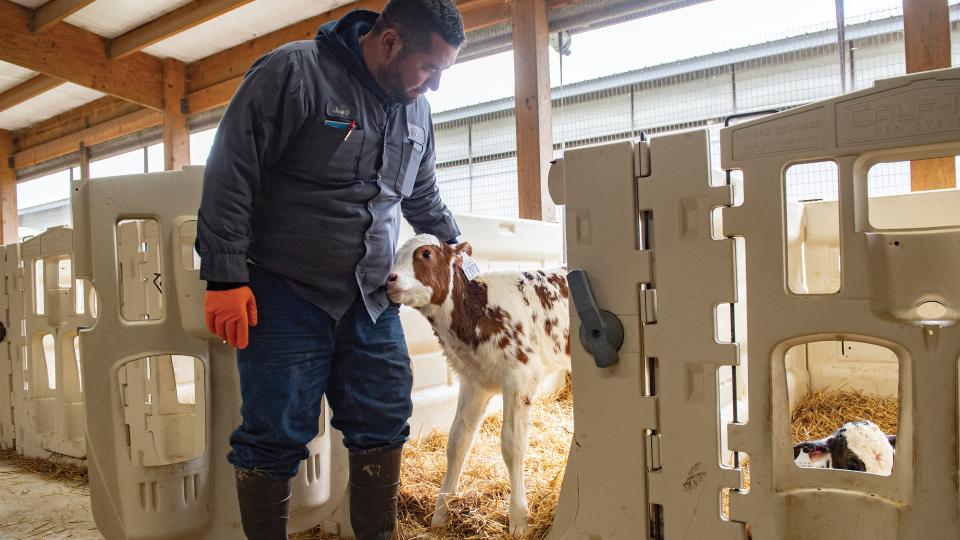Why a culture of care is important for dairy operations
By Dr. Jonathan Townsend
Consumers expect not only high-quality dairy products, but also proven ethical and responsible animal care practices. A new Dairy Care365® online training module from Merck Animal Health helps dairies establish a culture that prioritizes respect for both animals and workers.
The “Creating a Culture of Care” module is designed to help dairy leaders formalize animal care practices and training procedures that are likely already in place, with tools and resources to document and measure these methods in order to validate exceptional animal care every day of the year.
Demonstrating culture of care practices is important to meet consumer and societal expectations of the industry. Even more important – it’s the right thing to do for the animals and people.

The five-lesson module was developed in cooperation with Dr. Brandon Treichler, an expert in animal welfare, and includes lessons in creating a leadership pledge, a zero tolerance for animal abuse policy, protocols and SOPs, training plans, as well as methods for monitoring and measuring for accountability.
Benefits to employee success and animal well-being
A culture of care can promote greater job satisfaction, reduced worker stress, less absenteeism, less employee turnover and fewer accidents – all crucial in today’s state of labor shortages.
By establishing and communicating a culture of care, you create a strong connection between humans and animals on the dairy, and everyone from calf raiser to CEO understands what it takes to provide better and more consistent animal care.
What a culture of care looks like
Establishing a culture of care within your operation is likely a simple matter of formalizing processes and practices that are already in place for everyone on the dairy to understand.
While a culture of care is based on respect for both humans and animals, emphasizing respect for workers is the first step in establishing respect for animals. When workers are treated respectfully, understand their roles, and have opportunities to learn and grow, this positive environment transfers naturally to how animals are cared for.
Some key factors of a culture of care may include:
- A clear vision for the operation that’s well communicated and continuously reinforced
- Hiring employees based on values of respect, courtesy and dignity
- Onboarding that emphasizes care, along with a signed care commitment
- SOPs for all tasks to help ensure everyone knows safe and efficient practices
- Training programs and ongoing education that continues through employment
- Actionable feedback that helps workers understand how they’re doing
- Two-way communication between managers and staff to consider improvements
- Growth and recognition for employees who demonstrate knowledge and commitment
Some of the benefits to animals, which should be communicated as part of your culture of care program, include:
- Safe and comfortable environment that allows animals to remain calm and focus on eating, drinking and producing milk
- Stress-free handling with calm, quiet movements and knowledge of how to utilize the cows’ “flight zone” when moving them
- Faster, easier, cleaner milking by reducing stress hormones that could interfere with milk let-down, as well as less defecation
- Fewer injuries to both cows and workers and a lower chance of slipping or falling
Get started building your culture of care
Creating a Culture of Care is the tenth module in the Dairy Care365 training initiative, launched by Merck Animal Health in 2012. Nine other training modules focus on e-learning for dairy employees, covering such topics as dairy stockmanship, newborn calf care and non-ambulatory cow handling.
Merck Animal Health provides these online training modules to customers at no charge as part of its social commitment to help dairy producers collectively raise the bar on animal care.
Visit DairyCare365.com for more information. To view Creating a Culture of Care and other Dairy Care365 learning modules, log-in or create an account here.
Find more content for your dairy operation.
About the author

Dr. Jonathan Townsend, D.V.M., PhD.
Dairy Technical Services,
Merck Animal Health>
